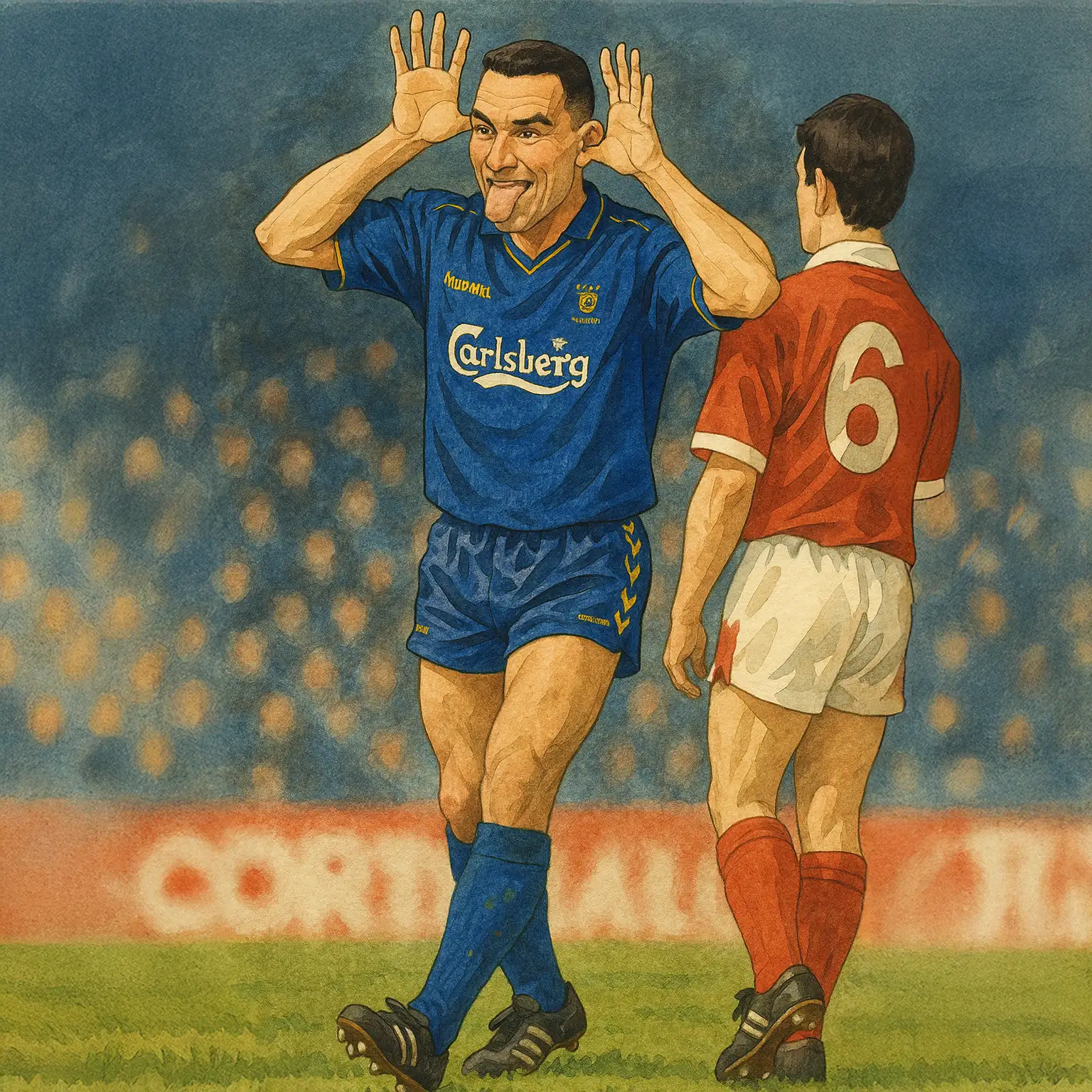
He never won the Champions League. He never lifted the Ballon d’Or. But no one played quite like Jay-Jay Okocha.
From the streets of Enugu to the bright lights of Frankfurt, Istanbul, or Paris, Okocha turned football into a spectacle. This is the story of a player who couldn’t be tamed — and who reminded us that, before anything else, football is supposed to be fun.
Born to Shine
Some players were born to play football. Jay-Jay Okocha was born to entertain. In a world increasingly obsessed with systems and roles, Okocha reminded us what football once was — just a game. A place for joy. For freedom. For expression.
He was born Augustine Azuka Okocha on August 14, 1973, in Enugu, Nigeria. Football was everywhere — in the streets, in the dust, in his blood. Like many Nigerian boys, he played barefoot. But unlike the others, he turned every kick-about into a carnival. Flicks, tricks, backheels, drags — nothing was ever done the easy way. It had to be done with flair.
In 1990, shortly after West Germany had won the FIFA World Cup, Okocha went on holiday there so he could watch German league football. He had a friend playing in the Third Division for Borussia Neunkirchen, and one morning Okocha accompanied him to training. He asked to join in, and the coach was so impressed with his skills that he offered him a contract.
That visit changed everything.
Two years later, Eintracht Frankfurt came calling. That’s where the myth began.
The Goal That Broke Physics (and Kahn)
Frankfurt, 1993. Eintracht against Karlsruhe. Jay-Jay picks up the ball just outside the box. He twists. He turns. He feints. He turns again. Then again. Defender after defender dives in — and misses. One falls. Another is left on the floor. And then there’s Oliver Kahn, future World Cup finalist, completely undone. Okocha walks the ball past him, waits for the final moment, then lashes it into the top corner.
It was a goal that broke tactics. Broke logic. Broke physics. It was voted Goal of the Season in Germany. And it was pure Jay-Jay.
He played at Frankfurt alongside players like Tony Yeboah — the powerful Ghanaian striker who finished as Bundesliga top scorer — and German international midfielders Thomas Doll and Maurizio Gaudino.
But his magic didn’t always please his managers. The Bundesliga, then one of the most physical leagues in the world, didn’t know what to do with him. He was in and out of the team. Coaches wanted discipline. He gave them dribbles. They wanted efficiency. He gave them joy.
“
My biggest influences? Jay-Jay Okocha. He was doing things with the ball I had never seen before."
Ronaldinho Gaúcho Tweet
The Summer of USA '94
The 1994 FIFA World Cup in the United States was Nigeria’s first ever appearance — and Jay-Jay Okocha was part of a golden generation that captivated the world.
Alongside Rashidi Yekini, Daniel Amokachi, Sunday Oliseh and Finidi George, Okocha helped Nigeria top a group featuring Argentina and Bulgaria. He played with freedom, threading passes through defences and teasing opponents with his dribbles. Though he wasn’t always a starter, his influence grew as the tournament progressed.
In the Round of 16 against Italy, Nigeria led until the 88th minute. But Roberto Baggio turned it around. Despite the loss, Nigeria had announced themselves — and Okocha was now on the global radar.
Fire and Freedom in Istanbul
In 1996, he moved to Fenerbahçe. Turkey welcomed the showman. And Jay-Jay gave them fireworks.
Fenerbahçe gave Okocha the two things he craved: the ball, and the license to do whatever he wanted with it. In two seasons, he scored 30 goals, including a string of free-kicks that seemed to defy spin and gravity. One was so spectacular that it made its way to Nike’s Joga Bonito tapes years later.
He played alongside legends like Elvir Bolic and Rüştü Reçber — and became a fan idol in Istanbul.
But more importantly, he danced. He dribbled past defenders like they were ghosts. He brought the joy back to football — and not just in Istanbul. His flair earned him a move to one of the most expressive clubs in the world: Paris Saint-Germain.
The transfer fee? £10 million. A record for an African player at the time.
Olympic Gold in Atlanta
In the same year he signed for Fenerbahçe, Okocha starred in another historic feat: Nigeria’s triumph at the 1996 Atlanta Olympics.
Jay-Jay was a key figure in a squad that would go down in history. Alongside Nwankwo Kanu, Celestine Babayaro, Taribo West, and Emmanuel Amuneke, Nigeria stunned Brazil in the semi-final and then defeated Argentina 3–2 in a dramatic final.
It was the first time an African nation had won Olympic gold in football. And Jay-Jay’s influence — both on and off the ball — was crucial. His leadership, skill and flair made him a national hero.
Parisian Chaos and Ronaldinho's Idol
Paris should have been his coronation. But it was, instead, a paradox. The talent was there. The moments were there. But the consistency? Not so much.
At PSG, Okocha played with legends: Marco Simone, Nicolas Anelka, and a young Brazilian who called him his idol — Ronaldinho.
Years later, when asked about his biggest influences, Ronaldinho didn’t hesitate: “Jay-Jay Okocha. He was doing things with the ball I had never seen before.”
That says it all. Even among magicians, Jay-Jay was a reference point.
But his PSG spell was also a mirror of his career. Coaches didn’t know what to do with him. Some games he started. Some he didn’t. He was too unpredictable. Too untamable.
But never boring.
The 1998 World Cup and That Denmark Game
Okocha had already played in the 1994 World Cup — Nigeria’s debut — and helped them stun the world by topping their group.
But it was in 1998 that the world truly saw his artistry. Nigeria, bursting with talent, beat Spain and Bulgaria to qualify. And Okocha was everywhere. Drifting, dribbling, dictating. He wore number 10 — but he played like numbers 7, 8 and 11 all at once.
Then came the Denmark game in the Round of 16.
It ended in heartbreak — a 4–1 loss. But even in defeat, Okocha was breathtaking. He dropped so deep at times he was effectively a regista. He drove the ball from defence to attack. And even as the scoreline turned brutal, he never stopped trying. He left the pitch in tears. And so did millions watching.
“
He scored screamers. He danced past markers. He nutmegged and winked. And the Reebok chanted: "Jay-Jay — so good they named him twice."
Bolton, Big Sam and the Cult of Jay-Jay
When he signed for Bolton Wanderers in 2002, many assumed it was a step down. But it was there — in the greys of the Premier League — that Jay-Jay found his cult.
Under Sam Allardyce, of all people — the patron saint of pragmatism — Okocha thrived. He wasn’t always on a leash. He was given space to improvise. And Bolton, expected to go down, survived. Then thrived.
He shared the pitch with players like Youri Djorkaeff, Iván Campo and Kevin Nolan. In 2003–04, they finished 8th and reached the League Cup final, their first cup final in nine years. Jay-Jay was captain.
He scored screamers. He danced past markers. He nutmegged and winked. And the Reebok chanted: “Jay-Jay — so good they named him twice.”
He became a symbol. Not of Bolton. But of joy. The kind of joy that had vanished from top-level football.
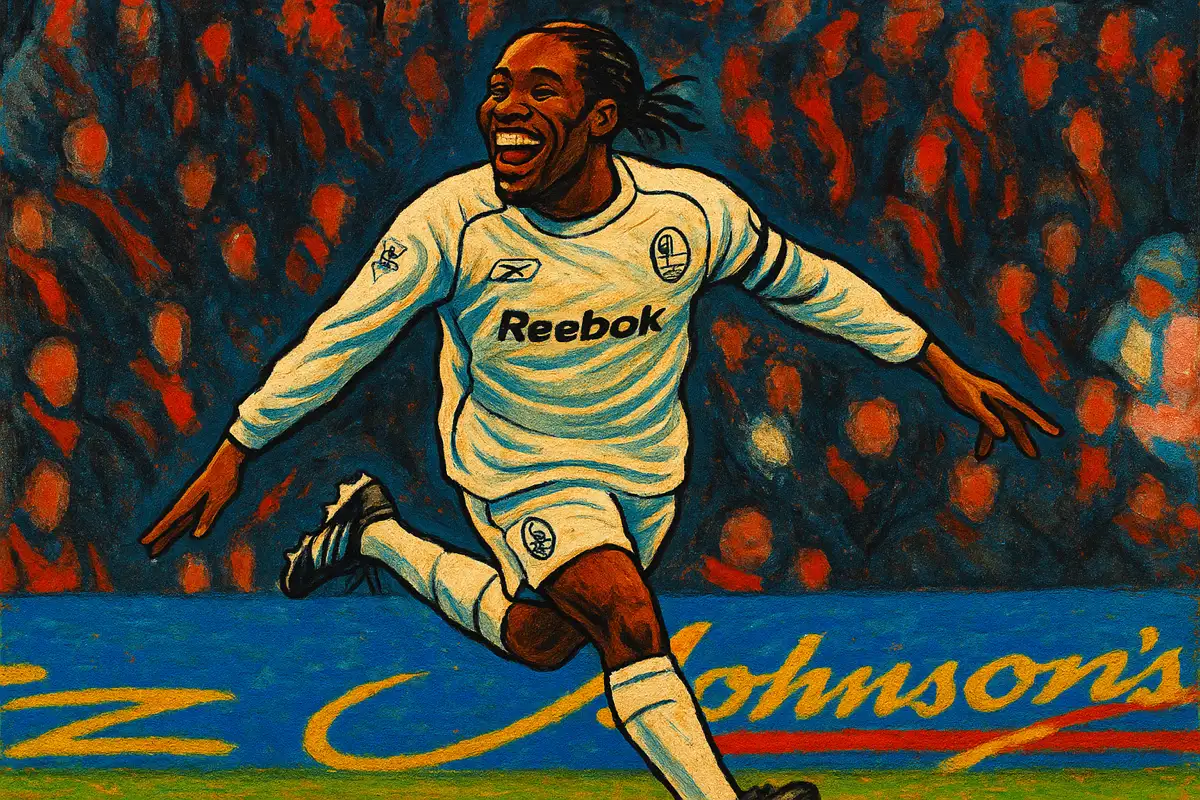
The Paradox of Greatness
Jay-Jay Okocha never won a major trophy in Europe. He wasn’t a Ballon d’Or finalist. He wasn’t even always a guaranteed starter.
But he’s remembered. Loved. Revered.
Why? Because greatness isn’t always about output. Sometimes, it’s about impact. On the fans. On teammates. On memory.
Ask anyone who saw him live — or who’s lost hours down YouTube rabbit holes — and they’ll tell you: he was different.
Football today is data-driven. Pressing maps, heat zones, xG.
Jay-Jay Okocha didn’t fit any of them. He fit in the heart.
A National Treasure
He had 73 caps for the Nigeria national team between 1993 and 2006, scoring 14 goals, and was a member of three FIFA World Cup squads. He is regarded as one of the greatest African footballers of all time and one of the most influential dribblers in World football history.
He won Olympic gold in 1996, was named BBC African Footballer of the Year twice, and remains one of the most beloved players in African history. His legacy is not just in highlights, but in the way he made people feel.
Farewell to the Game
Okocha left Bolton in 2006 and had brief stints with Qatar SC and Hull City, where he helped the club earn promotion to the Premier League. But injuries and age were catching up.
He officially retired in 2008, at 34. There was no farewell tour, no global tributes. Just silence — and memories.
In retirement, Okocha has remained a respected figure in African football. He has worked as a pundit, ambassador, and mentor to young players. His nephew Alex Iwobi followed his footsteps into the Nigerian national team.
Today, Jay-Jay is not just a legend. He’s a symbol — of freedom, of fun, of football as it should be.
Epilogue: The Last Freestyler
There will be more champions. More winners. More record-breakers.
But there will never be another Jay-Jay.
Because you can’t program genius. You can’t coach it. And you certainly can’t contain it.
Jay-Jay Okocha was untamable. And that’s why he was unforgettable.
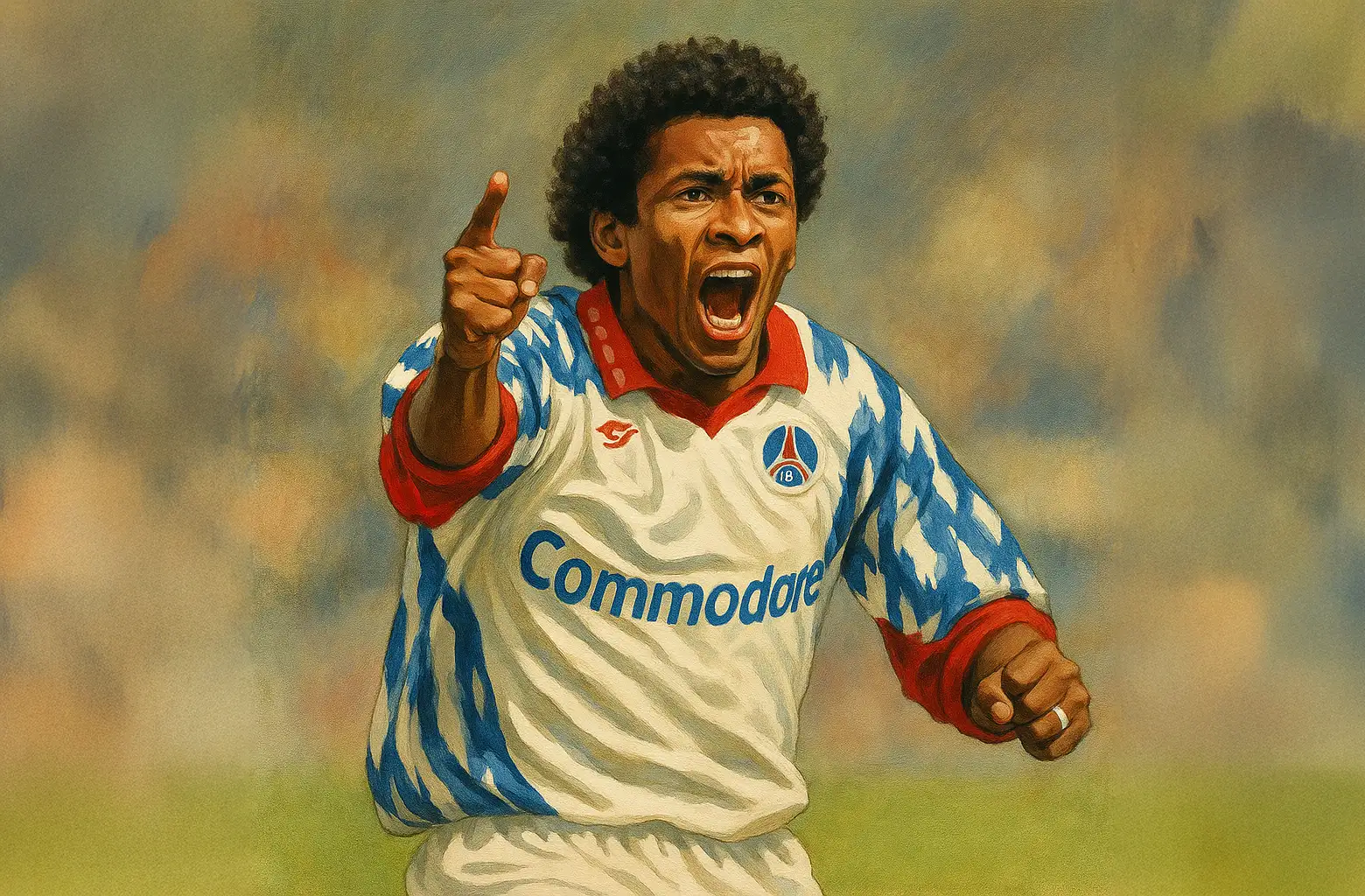
Valdo – provisory title
He dribbled like a dancer, played with a smile, and made chaos look beautiful. A rebel with the ball, and a genius no system could ever hold down.
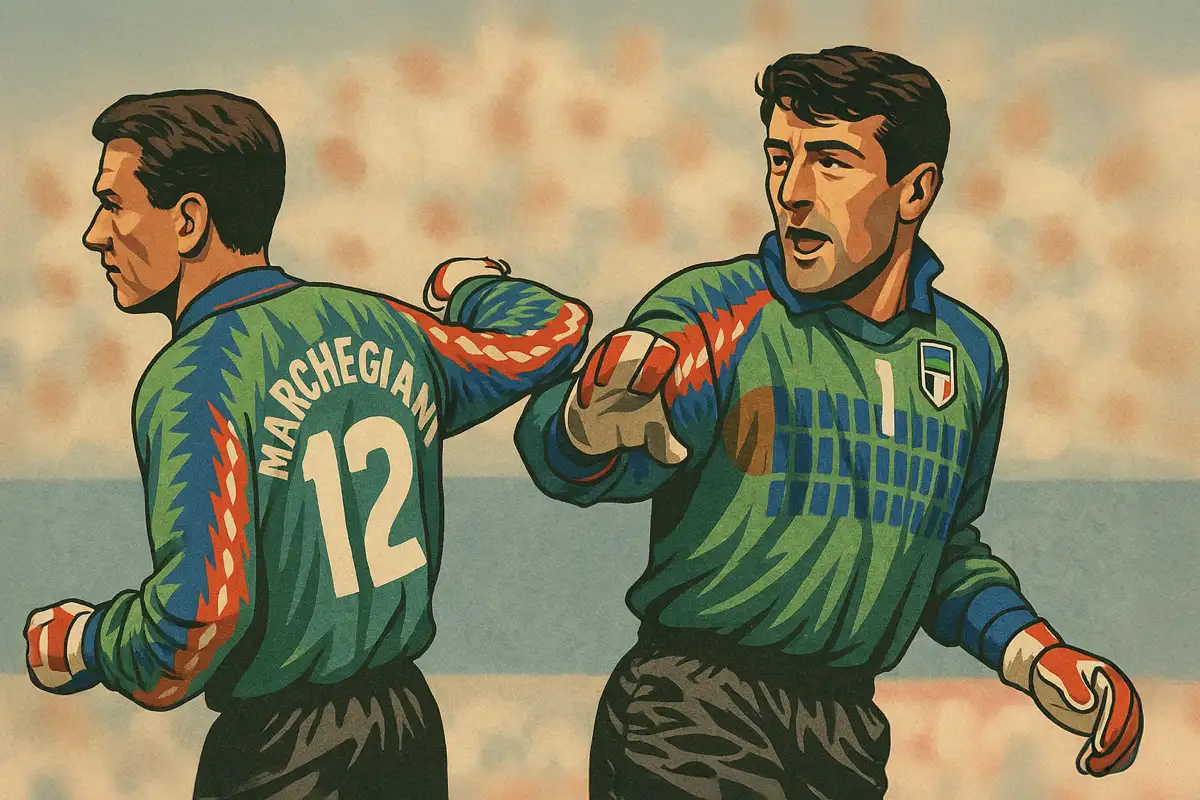
Italy’s 90’s Goalkeepers – provisory title
He dribbled like a dancer, played with a smile, and made chaos look beautiful. A rebel with the ball, and a genius no system could ever hold down.
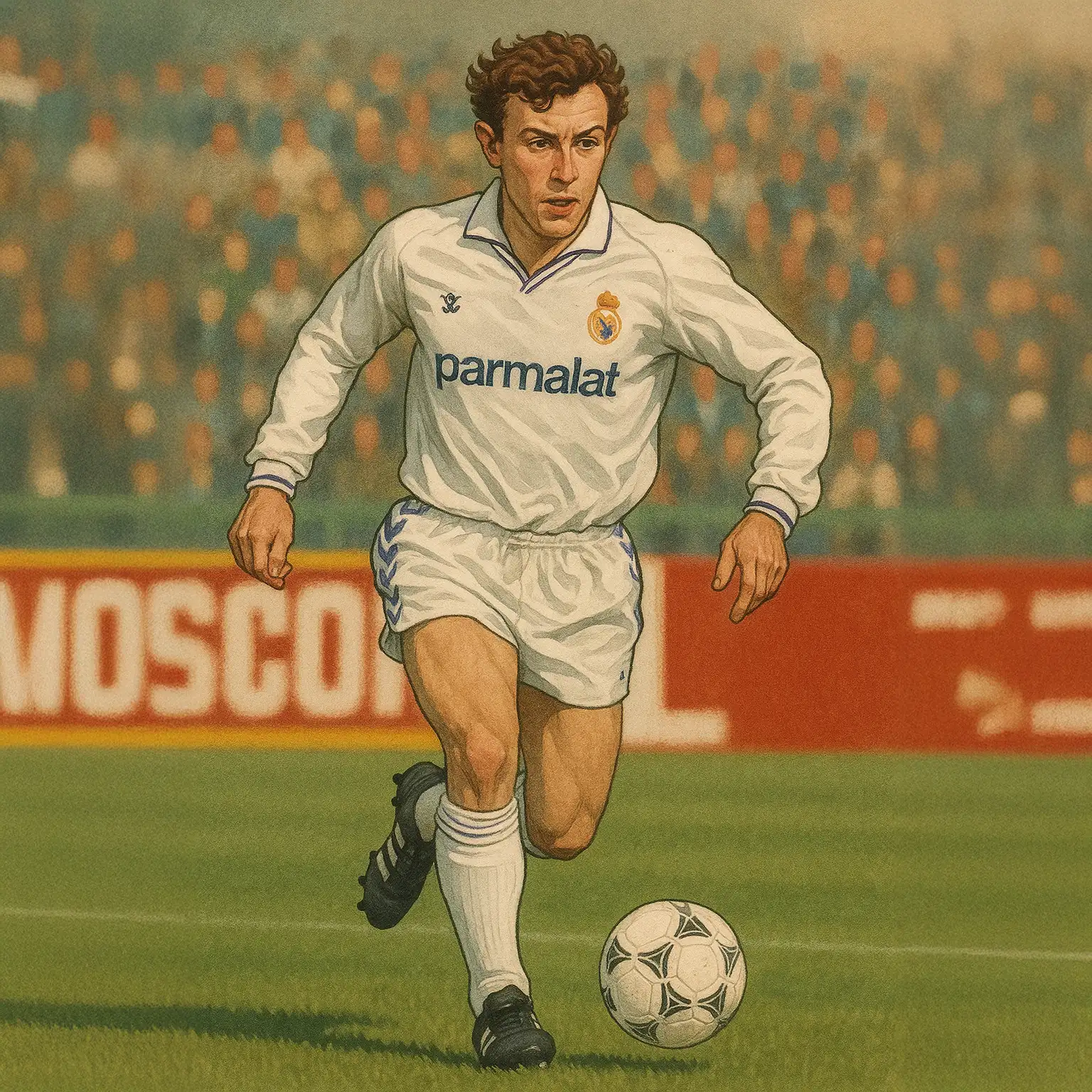
Emilio Butragueño – provisory title
He dribbled like a dancer, played with a smile, and made chaos look beautiful. A rebel with the ball, and a genius no system could ever hold down.

